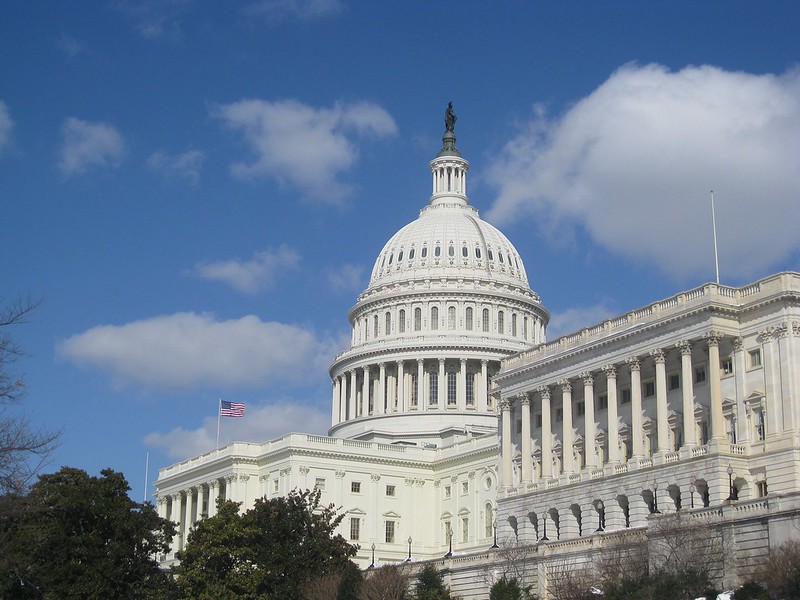
Senator Kelly Loeffler (R-Ga.) has released the “Modernizing Americans’ Health Care Plan,” a framework to reduce costs and increase healthcare choice and access through free market, patient-centered policies.
Sen. Loeffler should be applauded for releasing this proposal. The Modernizing Americans’ Health Care Plan contains important proposals to expand HSAs to American families across the country, rejects efforts to impose price controls when addressing surprise medical billing, and provides reforms to lower prescription drug costs and incentivize American manufacturing.
Not only does this proposal contain a number of pro-growth, patient centered reforms, it also serves as an important contrast to the proposals put forth by the radical left to increase taxes and move the nation’s healthcare system closer toward socialism.
Highlights of the proposal include:
Expanding Health Savings Accounts (HSAs)
HSAs are currently used by 30 million American families to pay for common health care expenses, including doctor’s visits, prescription drugs, and hospital care. HSAs are also a middle-class tax cut – money contributed to any HSA is tax-deductible, money invested in an HSA can grow tax-free, and money spent on qualified health care expenses from an HSA is tax-free.
The framework expands HSAs so that Americans can pay for their healthcare tax free. This will allow millions of Americans across the country including gig-economy workers, every American that receives health care through their employer, Americans on Medicare and Medicaid, and those that receive care through the VA, Indian health plans, and Obamacare.
The proposal also allows HSAs to be used to pay for healthcare premiums and direct primary care and increases the HSA contribution limit from $3,550 to $10,800 for an individual and $7,100 to $29,500 for a family.
Addressing surprise medical billing without resorting to price controls
Sen. Loeffler’s legislation rejects efforts to address surprise medical billing without price controls. Surprise medical billing occurs when an individual receives an unexpectedly high medical bill as a result of being out of network or receiving emergency care.
While reforms to protect patients from high healthcare costs should be considered, some lawmakers, including Senate Health Committee Chairman Lamar Alexander (R-Tenn.), are pushing a surprise medical billing proposal that uses the heavy hand of government to set rates for any payments made to out-of-network providers.
This would replace private negotiations between insurers and providers with price controls, a proposal that should be anathema to conservatives as it utilizes government power to forcefully lower costs in a way that distorts economically efficient behavior and natural incentives created by the free market.
Sen. Loeffler’s proposal wisely reject these price controls. Moving forward, any attempt to address the surprise medical billing issue should be done in a way that avoids price controls.
Reducing drug costs and America’s dependency on China
The framework rejects the plan by far-left Democrats and Nancy Pelosi to enact socialized healthcare through H.R.3, legislation that would impose a 95 percent tax on hundreds of innovative medicines if manufacturers do not accept government set prices.
Instead, Sen. Loeffler’s proposal aims to address the root cause of high drug costs – the fact that foreign countries are freeloading off American innovation by artificially lowering prices. In order to solve this problem, the framework calls for the creation of a Chief Pharmaceutical and Medical Supply Chain Negotiator in the Office of the United States Trade Representative to fight against foreign price controls.
Sen. Loeffler’s framework also encourages American manufacturing of pharmaceuticals, medical devices and supplies by providing tax incentives for American businesses.
For instance, the proposal allows companies that move back to the U.S. to be eligible for fully business expensing on non-residential property. In order to prevent companies from being taxed when they choose to move back to the U.S, the proposal allows businesses to exclude from gross income any gain earned on the disposition of assets in the country the company is moving from.
These tax cuts will help level the playing field so that America can compete against the rest of the world. The U.S. currently lags foreign competitors, so these reforms are much needed. According to a study by the Manufacturing Leadership Council, the U.S. ranks 26 out of 36 when it comes to tax incentives that encourage domestic research and development.

